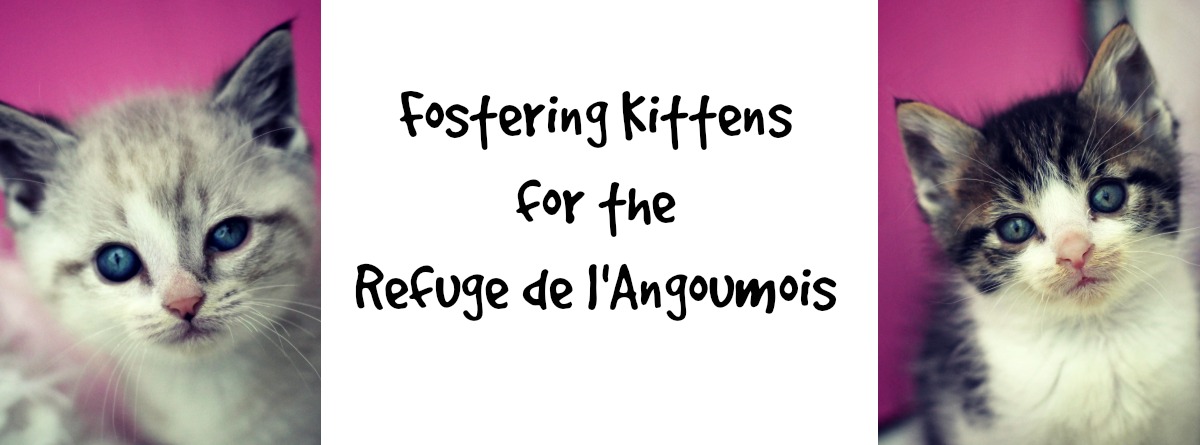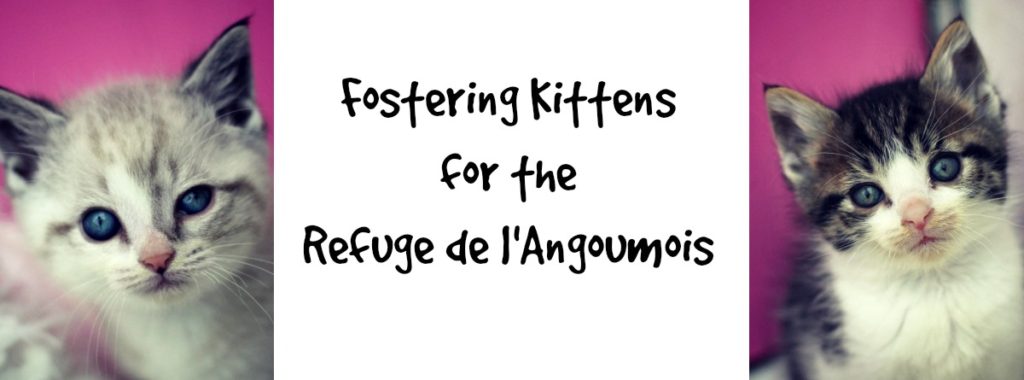About fostering
Since 2014, the pound has accepted a large number of kittens during the kitten season. The majority of these come in without their mother. Some are still in need of bottle feeding. Others are barely weaned. With over 800 passing through the gates, foster homes are the best chance for our kittens. Without our network of foster homes, a very high percentage of our kittens do not stand a chance: they are so vulnerable to infection that cat flu, typhus and other cat diseases pass rapidly between them. In 2014, treating thirty or forty kittens twice a day for cat flu, cleaning noses and helping to wean them took up the majority of our cattery staff’s time and cost many little lives.
In 2015, with a growing number of foster homes, we could limit infection and many lives were saved. Not only that, growing up in a home is vastly different than growing up in the refuge. Our kittens left our care healthy and well-socialised, with a great care package from the refuge for their future.
For this reason, kitten foster homes are in hot demand. With five hundred kittens expected in 2016, at least fifty foster homes are needed. The more we have, the better chance our kittens will have.
Being a fosterer for kittens is a very rewarding experience if you cannot have cats yourself or if you are not based in France full-time.
What does it involve?
It largely depends on how old the kittens are. For younger kittens, they have a longer stay. Kittens arriving aged 7 weeks have a brief stay of 8 days to ensure they are not carrying any diseases, and then they can be vaccinated, chipped and advertised for adoption. Ideally, it is best if they stay in foster care until they are 14 weeks after their second vaccinations, although many are adopted after their first vaccinations. For younger kittens, they cannot be vaccinated until they are at least eight weeks, so their stay is a little longer. From time to time, we have kittens younger than three weeks arrive at the pound. In such cases, it’s better if less experienced foster carers take over older kittens and allow more experienced foster carers to take over hand-feeding.
You will need a spare room which can be isolated from other animals. Although you may have cats or dogs, it’s important that they do not come in contact with kittens until at least the first vaccinations as the risk of infection is very high. This is also important since many kittens arrive with fleas, but cannot be given any flea treatment until they are 8 weeks old, so the risk of fleas passing between animals is high. A spare bathroom or bedroom is lovely. Kittens can get messy, so the easier it is to clean, the better. It will need to be kitten-proofed – kittens have a remarkable ability to get into very small spaces, dryers, behind cookers etc and you will need to make sure the kittens will be safe. The room will also need to be sanitised between kitten families, which makes a spare bathroom or utility room ideal.
Everything else will be provided for you by the refuge, from milk and kitten food to litter and worming treatments. Flea treatments, medicines and the likes will also be provided by the refuge. Bowls, toys, bedding and cat carriers are also provided. You’ll also be given lots of guidance and support including a training session by an experienced kitten fosterer. We do ask that you look after our little ones and take good care of them. That may involve giving eye drops or wormers. It also involves handling them, playing with them, cleaning them and photographing them. If it’s your first time, we can make sure you’re given kittens who are a little older and who are much more self-sufficient.
We do ask that you are within a short drive of the refuge, since all veterinary care must be undertaken either at the refuge or by one of our partner vets.
Once the kittens have been vaccinated, if they have not been adopted, it is much safer to return them to the refuge, where potential adopters can see the kittens that we have available. Foster care is not intended to be indefinite: we do not expect you to keep the kittens until they are adopted, or to advertise them or find homes yourself.
If you would like further information, don’t hesitate to get in touch with Emma at [email protected]


